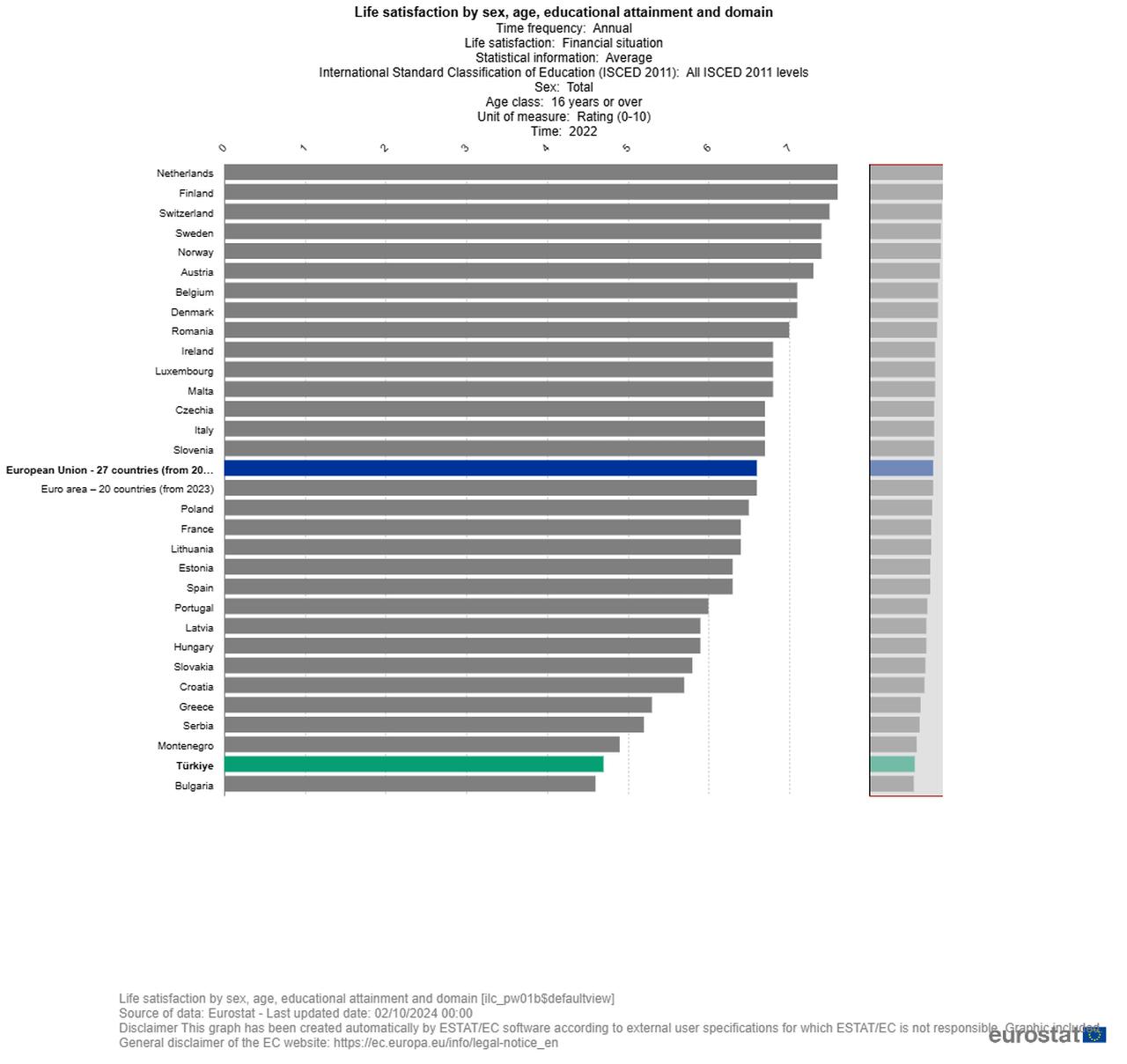
Turkish people are among the least content with their household finances in Europe, as a Eurostat study shows their average rating of financial satisfaction on a 0–10 scale fell to 4.7 in 2022, well below the EU average of 6.6.
The figure places Türkiye second from the bottom, only 0.1 points ahead of Bulgaria. Other Balkan countries followed Türkiye with scores of 4.9 for Montenegro, 5.2 for Serbia, 5.3 for Greece and 5.7 for Croatia.
According to the data, Türkiye fell three ranks compared to the previous survey period in 2018 and six places compared with the 2013 results.
In 2013, when the average financial satisfaction rate stood at 5.1, Türkiye ranked seventh from the bottom.
Since then, it has fallen behind all Balkan countries except Bulgaria, which improved from 3.8 to 4.6. Other Balkan countries also advanced in financial well-being since 2013, with Greece rising from 4.3 to 5.3, Serbia from 4.1 to 5.2, Croatia from 4.7 to 5.7 and Montenegro from 4.7 to 4.9.
Portugal, a southwestern European country far from Türkiye’s financial well-being status in 2013, also advanced significantly to 6.0 from 4.6, posting the best performance among all European countries.

The average for the 27 EU countries also improved over the years, rising from 6.1 to 6.6, though the pace slowed between 2018 and 2022, when the figure rose by just 0.1 percentage point.
Among the countries with the highest rates, the Netherlands and Finland ranked first with 7.6, followed by Switzerland with 7.5 and Sweden with 7.4.
From the previous period in 2018, Lithuania posted the highest increase with 1.2 points, while Ireland recorded the sharpest drop with 1.3 points, followed by Türkiye with 0.2 points.

The figures reflect one of the most ruinous impacts of the inflation crisis in Türkiye, as citizens have been living with double-digit rates since November 2019.
According to Türkiye Today’s calculations, the Turkish lira depreciated by over 86% during the period, while overall consumer prices rose by more than 631% as of July, based on figures from the Turkish Statistical Institute (TurkStat).
The hunger threshold—the minimum amount needed to cover the nutritional needs of a family of four—rose to ₺26,413 ($673.76) in July, while the poverty line, representing all basic needs, rose to ₺86,036 ($2,096), the Confederation of Turkish Trade Unions (Turk-Is) reported.
Türkiye's gross domestic product (GDP) per capita surpassed $15,000 in 2024, placing it among high-income countries, but rising income inequality—reflected in the Gini coefficient climbing to 0.413 from 0.404 a decade earlier—shows that many households have not shared in the gains.